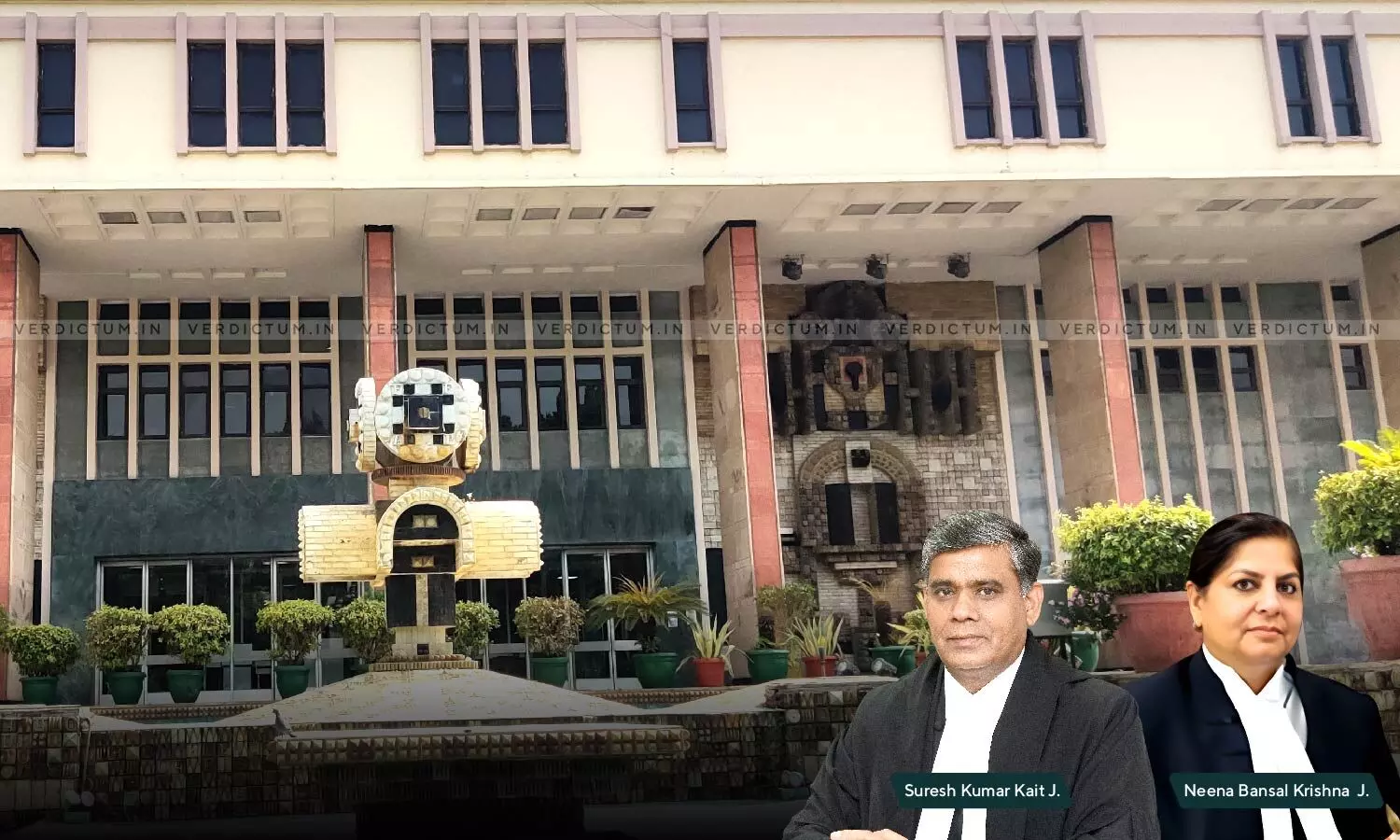
Unwarranted Interference Of Wife’s Parents In Matrimonial Life: Delhi HC Grants Divorce To A Husband
 |
|The Delhi High Court granted divorce to a man on the ground of cruelty as it found that there was unwarranted interference of his wife’s parents in their matrimonial life.
The husband had preferred an appeal under Section 28 of the Hindu Marriage Act, 1955 (HMA) against the judgment by which the divorce petition filed by him on the ground of cruelty under Section 13(1)(ia) of HMA was dismissed.
A Division Bench comprising Justice Suresh Kumar Kait and Justice Neena Bansal Krishna said, “From the evidence of the parties, it is evident that there was an unwarranted interference of the parents and the family members of the respondent in the matrimonial life of the appellant, as has been asserted by him. Such parental interference reached an extent of causing immense harassment to the appellant, who was even made to face multiple complaints before the different agencies. The parties are residing separately since 2001 i.e. for about 13 years, during which the appellant has been deprived of his conjugal relationship for no fault of his. It needs no reiteration that the bedrock of any matrimonial relationship is cohabitation and conjugal relationships.”
The Bench added that for a spouse to be deprived of his wife’s company proves that the marriage cannot survive, and such deprivation of conjugal relationships is an act of extreme cruelty.
Advocate Manish Goswami appeared on behalf of the appellant while Advocate Shivam Bharara appeared on behalf of the respondent.
Facts of the Case -
The parties got married in 1999 and one son was born out of the wedlock. The appellant husband asserted in his divorce petition that after the marriage, he and his family members gave due regard, respect, love, and affection to the respondent wife despite which she did not reciprocate the same sentiments towards him and his family members. She used to inquire about the assets and business of the husband’s family which caused a mental alarm in his mind. She also asked for a partition and share in the business of father-in-law to implicate the husband and his family in false cases.
The husband claimed that there was a constant parental interference of the wife and she would tell everything that transpired in the matrimonial home to her parents, who in turn would confront him with the incidents. When he asked her to reduce the interference of her parents in their matrimonial life, she again misbehaved and extended threats to him. Her parents also misbehaved with the husband’s parents. Hence, the husband wanted divorce from her.
The High Court in view of the above facts noted, “The respondent in her cross-examination had tried to give an explanation that these complaints were made only with an intent for re-conciliation. However, this explanation is not tenable for the simple reason that it resulted in tremendous harassment of the appellant and his family members. Making such complaints before the National Commission for Women, CAW Cell and even the police solely with the intent of conciliation, cannot be held to be justifiable.”
The Court observed that every aggrieved person has the absolute right to initiate appropriate legal action and has every right to approach the state machinery, however, it was for the wife to establish that she was subjected to cruelty or dowry harassment by placing forth cogent evidence in support of her allegations. It added that though filing of a criminal complaint per-se cannot amount to cruelty, however, such grave and uncorroborated allegations of cruelty unsubstantiated during the divorce proceedings, are all acts of cruelty towards the husband in addition to be a proof of intention of the wife to reject the matrimonial relationship.
“In the case of K. Srinivas Vs. K. Sunita X (2014) SLT 126, the Supreme Court held that filing of the false complaint against the husband and his family members constitutes mental cruelty for the purpose of Section 13(1)(ia) of the Act, 1955. The Supreme Court in the case of Ravi Kumar Vs. Julmidevi (2010) 4 SCC 476 has categorically held that “reckless, false and defamatory allegations against the husband and family members would have an effect of lowering their reputation in the eyes of the society and it amounts to cruelty.” Similar observations were made by the Coordinate Bench of this Court in the case of Rita Vs. Jai Solanki (2017) SCC OnLine Del 9078 and Nishi Vs. Jagdish Ram 233 (2016) DLT 50”, it noted.
Furthermore, the Court said that such long separation with no effort by the wife to resume matrimonial relationship is an act of cruelty as held in the case of Samar Ghosh v. Jaya Ghosh (2007) 4 SCC 511.
“We thus, conclude that the evidence on record proved that there is no chance of reconciliation between the parties and such long separation peppered which false allegations, Police reports and criminal trial can only be termed as mental cruelty. The marital discord between the parties has pinnacled to complete loss of faith, trust, understanding, love and affection between the parties”, it also observed.
The Court held that such dead relationship has become infested with acrimony, irreconcilable differences, and protracted litigations and any insistence to continue the relationship would only be perpetuating further cruelty upon both the parties.
Accordingly, the High Court allowed the appeal and set aside the impugned judgment.
Cause Title- ABC v. XYZ (Neutral Citation: 2024:DHC:992-DB)